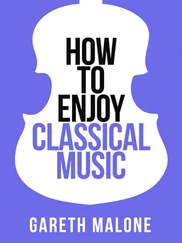STEPHEN FRY - OF CLASSICAL MUSIC
Здесь есть возможность читать онлайн «STEPHEN FRY - OF CLASSICAL MUSIC» весь текст электронной книги совершенно бесплатно (целиком полную версию без сокращений). В некоторых случаях можно слушать аудио, скачать через торрент в формате fb2 и присутствует краткое содержание. Жанр: на английском языке. Описание произведения, (предисловие) а так же отзывы посетителей доступны на портале библиотеки ЛибКат.
- Название:OF CLASSICAL MUSIC
- Автор:
- Жанр:
- Год:неизвестен
- ISBN:нет данных
- Рейтинг книги:5 / 5. Голосов: 1
-
Избранное:Добавить в избранное
- Отзывы:
-
Ваша оценка:
- 100
- 1
- 2
- 3
- 4
- 5
OF CLASSICAL MUSIC: краткое содержание, описание и аннотация
Предлагаем к чтению аннотацию, описание, краткое содержание или предисловие (зависит от того, что написал сам автор книги «OF CLASSICAL MUSIC»). Если вы не нашли необходимую информацию о книге — напишите в комментариях, мы постараемся отыскать её.
OF CLASSICAL MUSIC — читать онлайн бесплатно полную книгу (весь текст) целиком
Ниже представлен текст книги, разбитый по страницам. Система сохранения места последней прочитанной страницы, позволяет с удобством читать онлайн бесплатно книгу «OF CLASSICAL MUSIC», без необходимости каждый раз заново искать на чём Вы остановились. Поставьте закладку, и сможете в любой момент перейти на страницу, на которой закончили чтение.
Интервал:
Закладка:
PARIS AND VIENNA -A TWO-CENTRE BREAK
1902. The Boer War had just ended. With a treaty, of course. Everyone took themselves off to, let's see… Vereeniging. Not too bad, I suppose. It certainly could have been worse - Hunstanton was available due to a late cancellation, I understand. The final casualty statistics were something like Boers 4,000, Brits 5,800, which says it all, really. Other stuff? The Aswan Dam opens, Portugal is declared bankrupt - it only finds out when its card is refused at the supermarket, which is embarrassing - and Charles Richet, the French physician, discovers the whole scenario of anaphylaxis (extreme allergic reaction to antigens). In the arts, Kipling and Conan Doyle are probably the biggest writers of the year with the Just So Stories and The Hound of the Baskervilles respectively, and, alas, zut alors, bofet honi soit qui maly pense, we've lost Zola. Shame. But, looking on the bright side, we have gained Peter Rabbit, courtesy of Beatrix Potter. Not sure it's entirely a fair swap,? great-one-upstairs, but still.
Monet's utterly gorgeous Waterloo Bridge captures, forever, the Thames crossing with, even today, the finest views in the capital, give or take a huge wheel. Also, as Elgar works on his first Pomp and Circumstance march and Fred Delius dictates the notes of his Appalachia to his scribe, Eric Fenby, the heart-throb tenor Enrico Caruso cuts his very first phonograph record. Which sort of reminds me, let's get back to the music.
Let me take that two-centre break, as it were, and see what was happening in Paris and Vienna. In Paris, first, there's Thoroughly Modern Claude Debussy. This frisky forty-year-old was someone who, no doubt, would not have minded the label 'modern' in the slightest. He found Brahms, Tchaikovsky and Beethoven simply dull, and wanted his music to follow a totally different route. Living in Paris, the centre of the visual art world at the time, he was probably more up-to-date than most with new forms and ideas. He'd even been able to hear things like the sounds of a gamelanj5 orchestra He'd come across them at one of the grand exhibitions that were so popular around the turn of the century, and he'd been awestruck. It must have sounded different from any other music he'd ever heard and he wanted his music to be different - to sound different. A few years back, he'd managed to get tongues wagging with his Prelude a I'Apres-midi d'unfaune, in which he'd tried to soften the focus of his music, if you know what I mean. What I'm trying to say is that he'd tried to do exactly what seemed to be happening in painting at the time. In a Monet picture, you often see a subject in soft focus, as it were, and not sharp and photographic like the artists filfyou, like me, thought that gamelan' was a song by the bay City Rollers, then you should try and get to experience them. They are little Javanese percussion instruments, tuned and varying in size, which make one of the most delirious sounds imaginable. London's Royal Festival Hall used to - think it may still - have agamelan room so, if you're ever in town, pop in. Loosen your tie, leave your brain at the door, and visit a parallel musical universe. of old. Debussy had done more or less the same with PAL'AD'UF." Now he wanted to go a step further. So he wrote an opera, ironically a variation of the Tristan and Isolde story, and he did it in a pretty new and different way. There was no huge, big-tune aria; there was no real dramatic role for the orchestra; and there were almost natural speech rhythms for the voices. It would probably have sounded 'not right' to the opera-going public of 1902 - not worthy of a riot, as such, but, well, simply 'not right'. Dull, even, forgive me for saying so. They maybe wouldn't have got it. They could have been shouting for the big tunes, but wouldn't have really been disgusted by what was on offer. I'd love to have been there, just to see, for sure, what the reactions were. I get the feeling it would have been a case of a short, polite silence, followed by the word iEt…?
As for Vienna, well, Mahler's new symphony would probably have got more or less the same reaction, even though it was completely different. Since we last came across Mahler, he's converted to Catholicism, chiefly to become boss of music at the Vienna Opera House. In 1902, some five years into his tenure, he'd managed to finish his latest symphony. And here's where we put him up against Debussy.
Mahler and Debussy in 1902. Two very, very different composers indeed. Mahler was no innovator, really. He was a symphonist. Despite the work of Beethoven, Brahms and Bruckner, he felt that he could take the symphony further - and he was right. He wanted to take the symphony to its height, a sort of 'Romantic Symphony, the Final Reductions, EVERYTHING MUST GO', as it were. He'd gone down a totally different avenue from that trodden by Debussy and, not surprisingly - and sorry to state the obvious, but I have to - he'd ended up somewhere totally different. Both works are masterpieces with the Mahler maybe giving up its treasures a little easier than the Debussy - and it's not often you hear that said about old Gustav. Mahler's Fifth Symphony - for it is he! - centred on the majestic Adagfietto, is a brown, autumnal, rolling sea of a piece, whereas Debussy's Pelleas et Melisande is a fine, idyllic work which somehow steals from bar to bar like a ballerina on pointe. fi What a gnat acronym - Debussy's Paladuf. Lave it.
A 'MUSIC IN FINLAND'?**?*?**?5???? PARAGRAPH
w e get to Finland just in time for the New Year. Of 1903, that is, and, as the famous Lord Monty of Python so rightly sang, 'Finland, Finland, Finland, the country where I quite want to be, eating breakfast or dinner, or snack lunch in the hall!' Ah yes, true words. Words of wisdom. And as they went on to say, so sadly neglected, and often ignored. Well, back in 1903, a man called Jean was going some way to repairing that.
Back then, the words 'Finland' and 'music' were beginning to be used together, most commonly, to talk about the man called Jean. He was once called Johann, but, by 1903, he'd long since changed his name.
People were now (then) saying that Jean Sibelius WAS Finnish music. To be fair, it's pretty much the same today, for most people anyway. Finnish music was and still is Johann Julius Christian Sibelius. By 1903, aged thirty-eight, he was a bit of a local, national and, pretty much, international hero. His work, Kullervo, had made him a bit of a celeb, some twelve years ago, and The Swan ofTuonela, En Saga and his First Symphony had done nothing to dent his reputation. He was the saviour of Finland's national music. In 1899, he'd produced his tone poem, or symphonic poem, call it what you will, Finlandia. I get the impression that Finlandia more or less sealed the triumphant fate of Sibelius, in 1894, in that, from that moment on, he could do no wrong in his own country. Had he filled his time with nothing more than whittling wood and 'mowing the old lawn' from that point on, he would still have spent his years having his drinks bought, turning down offers from blondes to have his children and seeing his face appear on stamps. Actually, that last bit's true - he did appear on Finnish stamps.
So, if life was so good, what was eating old Jean, because something was? I'll tell you. By 1903, he still hadn't achieved his boyhood dream. In fact, to be fair, he never would. You see, as recendy as 1891, Sibelius had still been applying to the Vienna Philharmonic to be a VIOLIN PLAYER. Not a conductor or composer, but a FIDDLER He'd always wanted to be a fiddler, from as far back as he could remember. He was good, too, but, sadly, not great, and he would never make it. So. How to come to terms with the fact that he was never going to be the greatest concert violin virtuoso the world had ever heard? Apart from consoling himself with fine cognac and great cigars, he did the next best thing. He wrote, arguably, the greatest violin virtuoso concerto the world had ever heard. In 1903.
Читать дальшеИнтервал:
Закладка:
Похожие книги на «OF CLASSICAL MUSIC»
Представляем Вашему вниманию похожие книги на «OF CLASSICAL MUSIC» списком для выбора. Мы отобрали схожую по названию и смыслу литературу в надежде предоставить читателям больше вариантов отыскать новые, интересные, ещё непрочитанные произведения.
Обсуждение, отзывы о книге «OF CLASSICAL MUSIC» и просто собственные мнения читателей. Оставьте ваши комментарии, напишите, что Вы думаете о произведении, его смысле или главных героях. Укажите что конкретно понравилось, а что нет, и почему Вы так считаете.










